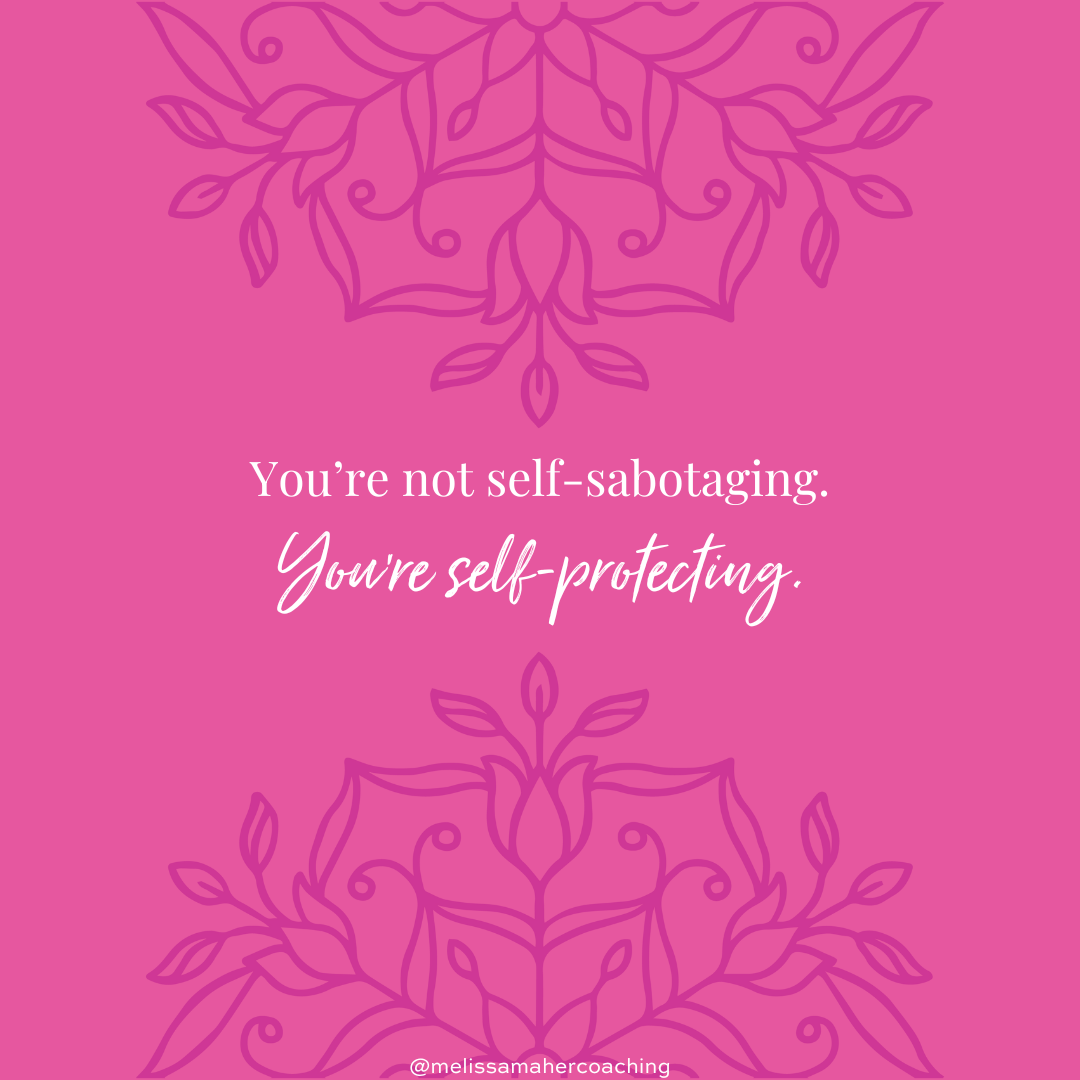You’re Not Self-Sabotaging. You’re Self-Protecting.
A coaching client recently reached out wanting to do some work around what she was labeling “self-sabotage” in areas of her life.
And while I certainly understood the painful pattern she was pointing to, I shared with her that I wasn’t a big fan of the term self-sabotage. That’s because the word sabotage, by the dictionary definition, means “to deliberately destroy, damage, or obstruct something”.
And I’m guessing you’re not intentionally trying to keep yourself stuck in painful, circular cycles when you find yourself magnetized toward a “self-sabotaging” behavior…right?
If you could do things differently toward a better outcome for yourself in those tricky moments when your counterproductive habits typically pop up in seemingly unstoppable ways, you would.
So you’re not actually self-sabotaging.
You’re self-protecting.
The parts of you perpetuating habitual behaviors that seem so counterintuitive and counterproductive to your logical, conscious, adult mind were created in an unconscious attempt to keep you safe and connected when you were young.
So while those young parts of you were brilliantly and importantly created to help you navigate the external world in a way you needed help navigating it with your limited resources at that time, those young parts are still only capable of seeing the world through the black-and-white, either-or filter of a child’s eyes.
Your youngest, most vulnerable parts weren’t able to discern and navigate appropriately through the nuances of life in its fullness that you — the highly resourced, self-aware adult you are now — are able to.
So those young, protective parts of you tend to — despite their most loving intentions — not work very effectively to protect you as an adult in the ways they used to be needed to protect you.
These young parts’ attempts to keep you safe are what your adult self feels frustrated by and stuck around as your self-sabotage-y behaviors.
And though these self-protective behaviors have served some vital purpose for you in the past, it’s time for an update.
Because you are far more resourced and more capable of taking loving care of yourself now, without having to rely on behaviors that leave you feeling worse rather than better.
One way you can start to upgrade your internal system is to let these young, protective parts of you know how old you actually are now.
Those parts have been relying on these same old behaviors because they think you’re still that vulnerable little one. One way to start the gears of the update in motion is to simply let those young parts of yourself know:
“Thank you so much for helping to keep me safe for all these years. I did just want to let you know, though, that I’m x-years-old now, and I’m actually quite capable of handling things in appropriate and responsible ways now.”
I invite you to check in with yourself right now: What difference do you notice inside your body when you hear the words “I’m self-sabotaging” versus when you hear the words “I’m self-protecting”?
Your organism has done an incredible job of keeping you alive and mostly safe for your entire life. Your parts aren’t trying to sabotage you. They’re trying to lovingly support you. They just need a bit of a system reboot to get up-to-date.
All parts of you make perfect sense when viewed in their full context.
And if you’re interested in further exploring the rich world of your “internal parts”, the book No Bad Parts by Internal Family Systems creator Richard Schwartz is a wonderful place to start.
Lots of Love,

